|
Books Should Be Free Loyal Books Free Public Domain Audiobooks & eBook Downloads |
|
|
Books Should Be Free Loyal Books Free Public Domain Audiobooks & eBook Downloads |
|
Fiction |
|---|
|
Book type:
Sort by:
View by:
|
By: Edith Wharton (1862-1937) | |
|---|---|
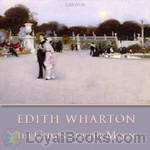 The Glimpses of the Moon
The Glimpses of the Moon
"The Glimpses of the Moon" (1922) is about Nick and Susy Lansing, both of whom live a decadent life in Europe by sponging off wealthy friends. They marry out of convenience and have an "open" relationship, but are unprepared for where their feelings will take them. | |
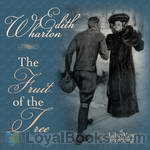 The Fruit of the Tree
The Fruit of the Tree
When published in 1907, this novel about the lives of a wealthy mill owner, her socially progressive husband and friends caused a stir due to its treatment of drug abuse, mercy killing, divorce and second marriages. | |
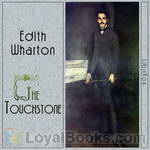 The Touchstone
The Touchstone
Stephen Glennard's career is falling apart and he desperately needs money so that he may marry his beautiful fiancee. He happens upon an advertisement in a London magazine promising the prospect of financial gain. Glennard was once pursued by Margaret Aubyn, a famous and recently deceased author, and he still has her passionate love letters to him. Glennard removes his name from the letters and sells them, making him a fortune and building a marriage based on the betrayal of another. | |
 Sanctuary
Sanctuary
Kate Orme, shocked by the discovery of her fiance's complicity in a tragedy, and by society's willingness to overlook such transgressions, nevertheless marries him. Years later, her son faces a moral crisis similar to the one that showed her his father's moral weakness. (Introduction by Christine Dufour) | |
 The Greater Inclination
The Greater Inclination
This is Edith Wharton's earliest published collection of short stories (1899). Like much of her later work, they touch on themes of marriage, male/female relationships, New York society, and the nature and purpose of art. One of the stories, "The Twilight of the God," is written as a short play. The role of Warland is read by mb, and the role of Oberville by Bruce Pirie. | |
 Crucial Instances
Crucial Instances
This is Edith Wharton's second published collection of short stories (1901). One of these seven stories, "Copy: A Dialogue," is written as a short play. The role of Hilda is read by Arielle Lipshaw, and the role of Ventnor by Mark F. Smith. | |
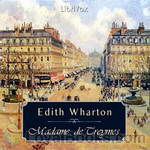 Madame de Treymes
Madame de Treymes
Edith Wharton's 1907 novella explores the milieu of Americans living abroad in Paris. New Yorker John Durham travels to Paris to woo an old flame, Fanny Frisbee, now the Marquis de Malrive. Fanny is separated from her husband and wants to marry John and return to America, but she doubts whether her Catholic husband will grant her a divorce. When John meets Fanny's sister-in-law, the enigmatic Madame de Treymes, he hopes she may be able to help them in their quest for happiness. (Introduction by Elizabeth Klett) | |
 The Marne: a tale of the war
The Marne: a tale of the war
American writer Edith Wharton is known for her novels of manners set in old New York; yet much of her adult life was spent in France. She lived in Paris throughout World War I and was heavily involved in refugee work. Her 1918 novella The Marne dramatizes the events of the war as seen through the eyes of 15-year-old Troy Belknap, an American boy who longs to join up and save his beloved France. | |
 Tales of Men and Ghosts
Tales of Men and Ghosts
Tales of Men and Ghosts was published as a collection in 1910, though the first eight of the stories had earlier appeared in Scribner's and the last two in the Century Magazine. Despite the title, the men outnumber the ghosts, since only "The Eyes" and "Afterward" actually call on the supernatural. In only two of the stories are women the central characters, though elsewhere they play important roles. Wharton enjoys subjecting her subjects -- all of them American gentlemen and gentlewomen, in the conventional senses of the word -- to various moral tests and sometimes ironic tests... | |
 Xingu 1916
Xingu 1916
| |
 The Triumph Of Night 1916
The Triumph Of Night 1916
| |
 The Choice 1916
The Choice 1916
| |
 Kerfol 1916
Kerfol 1916
| |
 Autres Temps... 1916
Autres Temps... 1916
| |
By: Edith [Editor] Carrington | |
|---|---|
 Dick and His Cat and Other Tales
Dick and His Cat and Other Tales
| |
By: Edith Œnone Somerville (1858-1949) | |
|---|---|
 Some Experiences of an Irish R.M.
Some Experiences of an Irish R.M.
This is the first of three novels which Edith Somerville and her cousin Violet Martin wrote about the English Major Sinclair Yates who leaves the army to take up a position of Resident Magistrate in the West of Ireland in about 1895. The tales tell in a humorous way of his struggles with a new job, new culture, and with his landlord and neighbour Mr. ‘Flurry’ Knox whose prime, if not only, interest is in hunting, which forms the background to all the stories. Miss Somerville was herself the first woman anywhere to become an M.F.H. | |
By: editor: Frank Munsey | |
|---|---|
 The Scrap Book Sampler
The Scrap Book Sampler
18 works -- two non-fic articles & one short fiction or poetry each -- from issues March, April, May, June, July, & August 1906 of The Scrap Book, Volume 1, edited by Frank Munsey. As he states in the editorial of the April 1906 issue (Vol 1, Iss 2) this was a sort of supplement to the editor's popular monthly, Munsey's Magazine. The Scrap Book is very like an American version of Punch with many short, often humorous articles interspersed with at least one short story, some poetry, and several longer non-fic pieces. The Scrap Book ran up to 1922. | |
By: Edmond de Goncourt (1822-1896) | |
|---|---|
 Germinie Lacerteux
Germinie Lacerteux
| |
 Renée Mauperin
Renée Mauperin
| |
By: Edmond Hamilton | |
|---|---|
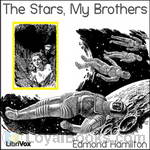 The Stars, My Brothers
The Stars, My Brothers
Edmond Hamilton (1904 – 1977) had a career that began as a regular and frequent contributor to Weird Tales magazine. The first hardcover publication of Science Fiction stories was a Hamilton compilation, and he and E.E. “Doc” Smith are credited with the creation of the Space Opera type of story. He worked for DC Comics authoring many stories for their Superman and Batman characters. Hamilton was also married to fellow author Leigh Brackett. – Published in the May, 1962 issue of Amazing Stories “The Stars, My Brothers” gives us a re-animated astronaut plucked from a century in the past and presented with an alien world where the line between humans and animals is blurred. | |
 The City at World's End
The City at World's End
A surprise nuclear war may cause the End of the World, but not the way anyone could have imagined. A classic science fiction tale from Galaxy Magazine. | |
By: Edmondo De Amicis (1846-1908) | |
|---|---|
 Cuore (Heart) An Italian Schoolboy's Journal
Cuore (Heart) An Italian Schoolboy's Journal
| |
By: Edmund Day (1866-1923) | |
|---|---|
 The Round-Up A romance of Arizona novelized from Edmund Day's melodrama
The Round-Up A romance of Arizona novelized from Edmund Day's melodrama
| |
By: Edmund Dulac (1882-1953) | |
|---|---|
 Edmund Dulac's Fairy-Book Fairy Tales of the Allied Nations
Edmund Dulac's Fairy-Book Fairy Tales of the Allied Nations
| |
By: Edmund Gosse | |
|---|---|
 Gossip in a Library
Gossip in a Library
A collection of informal essays about books in his library. He combines commentary, translations, and humorous asides about authors and their subjects. | |
By: Edmund Leamy (1848-1904) | |
|---|---|
 The Golden Spears And Other Fairy Tales
The Golden Spears And Other Fairy Tales
| |
 Irish Fairy Tales
Irish Fairy Tales
| |
By: Edmund Mitchell (1861-1917) | |
|---|---|
 Tales of Destiny
Tales of Destiny
| |
By: Edmund Spenser (1552-1599) | |
|---|---|
 Stories from the Faerie Queen
Stories from the Faerie Queen
A major work by Spenser, The Faerie Queen, was published between 1590 and 1596. As an allegorical work, it can be read on many levels. According to Jeanie Lang, Spenser always looked for the beautiful and the good when he wrote. Lang said, "There are many stories in The Faerie Queen, and out of these all I have told you only eight." The eight are "Una and the Lion," "St. Gergoe and the Dragon," "Britomart and the Magic Mirror," "The Quest of Sir Gregory," "Pastorella," "Cambell and Triamond," "Marinell the Sea-Nymph's Son," and "Flormell and the Witch." | |
 Brittains Ida or Venus and Anchises
Brittains Ida or Venus and Anchises
While hunting, the boy Anchises stumbles upon Venus's forest retreat and is so kindly entertained by the goddess that he becomes the proud father of Aeneas, the hero of Vergil's Aeneid. The poem is an epyllion like Marlowe's "Hero and Leander" and Shakespeare's "Venus and Adonis," a short erotic poem with a mythological subject. The style is Spenserian, the stanzas rhyming ababbccc. When Brittain's Ida was published in 1628, the publisher ascribed it to Edmund Spenser. However, in 1926 Ethel Seaton discovered and published Fletcher's original manuscript, whose opening stanzas make clear that this is the work of Fletcher, who entitled it "Venus and Anchises." | |
By: Edna Ferber (1885-1968) | |
|---|---|
 Fanny Herself
Fanny Herself
Fanny Herself is the story of Fanny Brandeis, a sensitive, young Jewish girl coming of age in the Midwest at the turn of the 20th century. It is generally considered to have been based on Ferber’s own experiences growing up in Appleton, Wisconsin. Fanny’s inner struggle between her compassionate, artistic side and her desire for financial independence as a successful young businesswoman is the recurring theme of the novel. Ferber’s engaging style of writing will quickly draw you into her story... | |
 Dawn O'Hara, The Girl Who Laughed
Dawn O'Hara, The Girl Who Laughed
Dawn O’Hara, the Girl Who Laughed was Edna Ferber’s first novel. Dawn, a newspaperwoman working in New York, finds herself back home in Michigan on doctor’s orders. Years of living in boarding-houses and working to pay for the care of her brilliant but mentally ill husband, Peter Orme, have taken their toll. At twenty-eight, Dawn feels like an old woman with no future. But, the loving care of her sister Norah and her family along with the attentions of the handsome German doctor, Ernst Von Gerhard, slowly bring Dawn back to life... | |
 Buttered Side Down
Buttered Side Down
"And so," the story writers used to say, "they lived happily ever after." Um-m-m—maybe. After the glamour had worn off, and the glass slippers were worn out, did the Prince never find Cinderella's manner redolent of the kitchen hearth; and was it never necessary that he remind her to be more careful of her finger-nails and grammar? After Puss in Boots had won wealth and a wife for his young master did not that gentleman often fume with chagrin because the neighbors, perhaps, refused to call on the lady of the former poor miller's son? It is a great risk to take with one's book-children... | |
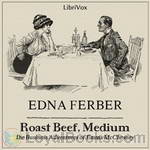 Roast Beef, Medium
Roast Beef, Medium
This book follows the adventures of Emma McChesney, a smart and savvy divorced mother who travels the Midwest as a sales representative for a large skirt and petticoat manufacturer. Her many adventures with people, (including predatory salesmen and hotel clerks), are funny and poignant. She is hardworking and able to outsell the slickest of the men salesmen. She has learned to focus on her work and her seventeen-year-old son, Jock. Experience has taught her that it is usually best to stick to roast beef, medium and not get stomach ache with fancy sauces and exotic dishes... | |
 One Basket
One Basket
This sparkling collection of 7 short stories by Ferber including some that are considered her all time best like The Woman Who Tried To be Good and The Maternal Feminine. Writing for and about women, Edna Ferber touches the very heart and soul of what it means to be human; to make good choices and bad; to be weak and strong. This was a very popular book when published in 1913 | |
 Personality Plus
Personality Plus
Personality Plus is an early novel by American author Edna Ferber. Originally published in 1914, Personality Plus is the second of three volumes chronicling the travels and events in the life of Emma McChesney. Ferber achieved her first successes with a series of stories centering around this character, a stylish and intelligent divorced mother who rises rapidly in business. ( | |
 The Dancing Girls
The Dancing Girls
The Dancing Girls is just one of the 4 excellent short stories in this recording. All written by the master, Edna Ferber for magazines between 1910 and 1919 they naturally contain her unique mix of real people, sadness, joy and always humor. The lead Story, The Dancing Girls, is my favorite for the way she paints a picture of mid America small town society and how good people somehow (and sometimes) can find their way to each other. Other stories in this collection are Old Lady Mandel; Long Distance; and One Hundred Percent | |
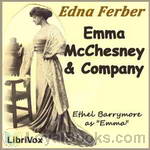 Emma McChesney and Company
Emma McChesney and Company
This is the final volume in the trilogy following the smart, stylish, divorced and independent businesswoman Emma McChesney in her career from stenographer, then drummer (traveling salesman) to owner of her own company. (The first was Roast Beef, Medium and the second Personality Plus). Edna Ferber first gained success with these stories and later went on to write Show Boat, Giant and other well known books. First published in 1915, Emma's son, Jock, has moved to Chicago with his new wife. Emma decides to sell in South America and proves she has not lost her magic touch... | |
By: Edna Henry Lee Turpin (1867-1952) | |
|---|---|
 Honey-Sweet
Honey-Sweet
| |
By: Edna Lyall (1857-1903) | |
|---|---|
 The Autobiography of a Slander
The Autobiography of a Slander
The Autobiography of a Slander exposes the consequences of reckless words or, even worse, intentionally disparaging words. In this moral tale, told from the point of view of "the slander", Edna Lyall (pseudonym used by Ada Ellen Bayley) reveals her ideals and goals in life and relationships. | |
 Derrick Vaughan, Novelist
Derrick Vaughan, Novelist
| |
 We Two, a novel
We Two, a novel
| |
By: Edouard Laboulaye (1811-1883) | |
|---|---|
 Laboulaye's Fairy Book
Laboulaye's Fairy Book
| |
By: Edward Bellamy (1850-1898) | |
|---|---|
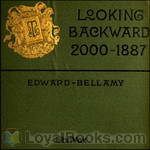 Looking Backward: 2000-1887
Looking Backward: 2000-1887
Looking Backward: 2000-1887 is a utopian novel by Edward Bellamy, first published in 1888. It was the third largest bestseller of its time, after Uncle Tom’s Cabin and Ben-Hur: A Tale of the Christ.The book tells the story of Julian West, a young American who, towards the end of the 19th century, falls into a deep, hypnosis-induced sleep and wakes up more than a century later. He finds himself in the same location (Boston, Massachusetts) but in a totally changed world: It is the year 2000 and, while he was sleeping, the U... | |
 Looking Backward 2000-1887
Looking Backward 2000-1887
| |
 The Blindman's World 1898
The Blindman's World 1898
| |
 The Duke of Stockbridge
The Duke of Stockbridge
| |
 An Echo Of Antietam 1898
An Echo Of Antietam 1898
| |
 A Love Story Reversed 1898
A Love Story Reversed 1898
| |
 With The Eyes Shut 1898
With The Eyes Shut 1898
| |
 At Pinney's Ranch 1898
At Pinney's Ranch 1898
| |
 A Summer Evening's Dream 1898
A Summer Evening's Dream 1898
| |
 The Cold Snap 1898
The Cold Snap 1898
| |
 Hooking Watermelons 1898
Hooking Watermelons 1898
| |
 Two Days' Solitary Imprisonment 1898
Two Days' Solitary Imprisonment 1898
| |
 Potts's Painless Cure 1898
Potts's Painless Cure 1898
| |
 A Positive Romance 1898
A Positive Romance 1898
| |
 The Old Folks' Party 1898
The Old Folks' Party 1898
| |
 Deserted 1898
Deserted 1898
| |
 Lost 1898
Lost 1898
| |